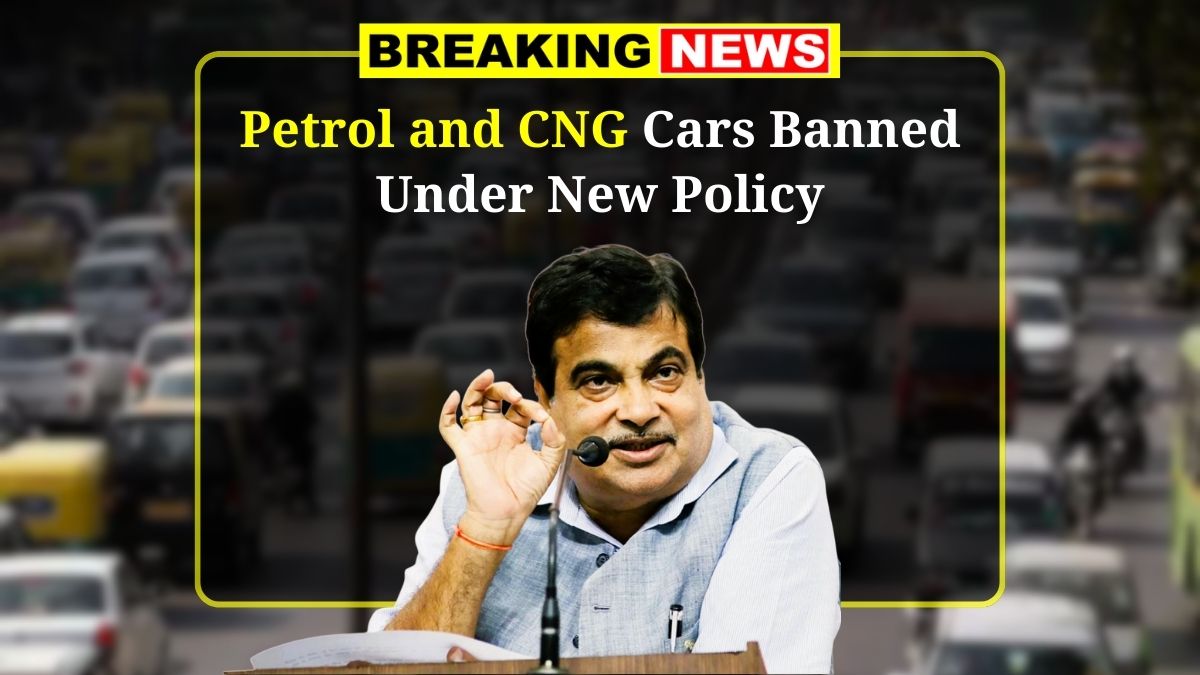Petrol and CNG Cars Ban – The Indian government’s latest push for greener transportation has left people scratching their heads, wondering if petrol and CNG cars are on their way out. With climate change and pollution becoming bigger concerns, there’s growing chatter about the government possibly phasing out traditional fuel vehicles. But is there really a ban coming, or is it just a shift in direction? Let’s break down what’s going on.
What the New Policy Actually Says
While there’s no outright ban on petrol or CNG cars yet, the government is clearly leaning hard into promoting electric vehicles (EVs). The recent announcements point to stronger support for EVs through better incentives and infrastructure development. Alongside that, there’s also talk of introducing stricter emission norms for vehicles that run on petrol and CNG. These changes are part of a broader plan to significantly cut vehicular pollution by 2030. So, while your petrol or CNG car isn’t being banned tomorrow, the writing on the wall is clear—the government wants a cleaner, electric future.
How the Auto Industry Is Reacting
Reactions from the auto industry are all over the place. Some manufacturers are going full throttle with EV production, rolling out new electric models and ramping up investment in research. Others, however, are more cautious and are urging the government to consider a more balanced approach. They argue that there’s still a role for cleaner petrol and CNG options, especially in areas where EV infrastructure is lacking.
Environmental groups are largely in favor of the new policy direction. For them, it’s a long-overdue step towards reducing air pollution and fighting climate change. On the flip side, consumer advocacy groups are raising red flags about affordability. EVs are still relatively expensive compared to petrol or CNG models, and not everyone has easy access to charging stations. Meanwhile, the fuel industry is also weighing in, pushing for a more gradual transition to avoid economic disruptions.
A Quick Look at Different Fuel Options
When you compare the fuel options available today, each comes with its pros and cons. Petrol cars are everywhere and have a solid support system, but they’re costly to run and emit a lot of carbon. CNG is cleaner and cheaper but comes with the hassle of fewer refueling stations and longer refueling times. EVs are great for the environment and cost less to run, but the high upfront price and limited charging infrastructure are still big hurdles. Hybrids try to offer a middle ground, with better fuel efficiency and lower emissions, but they’re also more complex and can be pricey to maintain.
What People Are Saying About All This
Public opinion is just as mixed as the policy reactions. In cities, many people are excited about the possibility of cleaner air and are more open to adopting EVs—especially younger professionals who see job opportunities in the growing EV sector. But out in rural areas, there’s a lot more skepticism. People worry about whether they’ll have access to EVs and whether they can even afford them. Older generations tend to be more comfortable sticking with what they know—traditional fuel cars—while business owners have mixed feelings. They’re concerned about how a shift to EVs could affect their operations and bottom line.
What Comes Next in the EV Push
To make this transition smoother, the government has a bunch of initiatives lined up. These include building more charging stations in both urban and rural areas, partnering with car companies to boost EV production, and running awareness campaigns to get the public on board. Still, there are plenty of challenges ahead.
Making EVs affordable and accessible to all is a huge task. There’s also the issue of how to support workers and industries that depend on petrol and CNG. And then there’s the balancing act between pushing environmental goals and making sure the shift is actually doable in real life.
So, Are Petrol and CNG Cars Really Getting Banned?
Not right now—but it’s clear that the government sees them as part of the past, not the future. If you’re driving a petrol or CNG car, there’s no immediate need to panic. But over the next few years, you can expect to see policies that make EVs more attractive and traditional fuel cars less so.
Ultimately, this transition will need buy-in from everyone—government, industry, and the public. Policies will need to be reviewed and adjusted along the way, and the government will have to listen to feedback to make sure the shift is fair and practical for all.
The new policy direction has definitely sparked a lot of debate and confusion. As India moves toward a greener future, clear communication, smart planning, and public involvement will be essential. A balanced approach—one that considers both environmental needs and economic realities—might be the best way forward. The journey won’t be simple, but with cooperation and innovation, it can be done.
Disclaimer
This article is for informational purposes only and reflects ongoing developments at the time of writing. It does not constitute legal, financial, or official government advice. Readers are encouraged to consult official sources for the most current policy updates and implementation guidelines.




